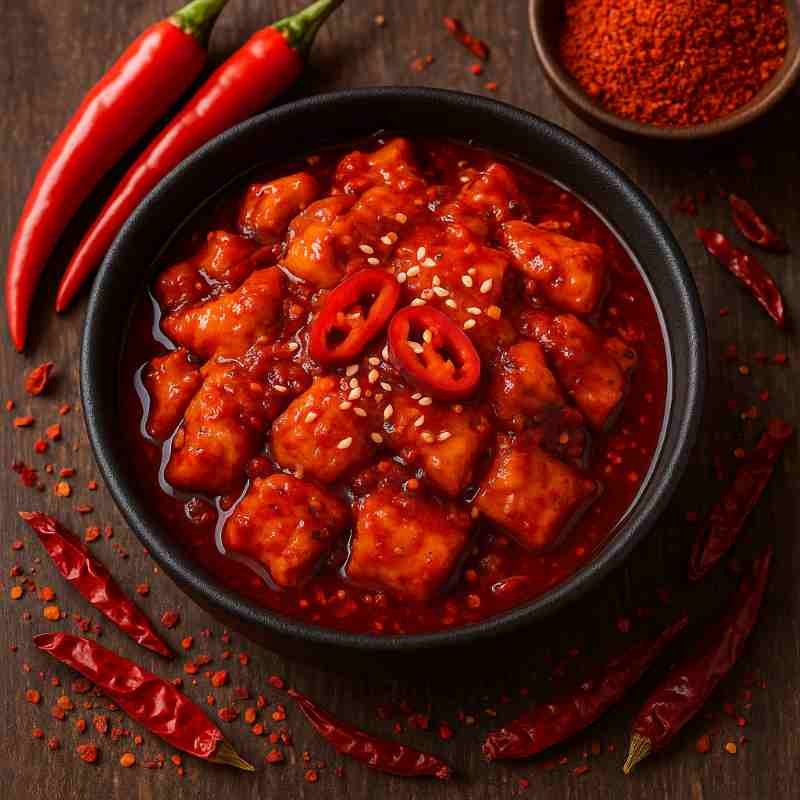Ever wondered why you feel hot and your face starts to blush, your heart races, or you break into a sweat after one bite of something spicy? Let me walk you through what’s happening, why it’s beneficial at times, and when it might go too far.
Why do we feel hot when eating spicy food?
Here’s the fun part: spicy food doesn’t literally heat your mouth like a hot drink does. Instead, a chemical in spicy foods — Capsaicin (and related compounds) — tricks your nervous system.
Here’s a simpler way to see it:
- In your mouth (and throat, etc.), there are receptors whose job is to detect heat or burning.
- Capsaicin binds to those receptors and makes them think “Hey — this is hot!” even though the temperature hasn’t changed.
- Your brain then interprets the signals from those receptors as heat, burning, or pain.
- Because your nervous system is “fooled,” your body reacts: you sweat, your blood vessels dilate (leading to flushing), maybe your heart rate goes up, and so on.
So that tingling “ouch, hot!” feeling is your body’s alarm system being triggered — even though there’s no actual flame or fire.
Read more on why spicy food tastes hot at ScienceFocus and why it causes the same physical reactions as does physical heat at ScientificAmerican.
How spicy food can be harmful
Here are the risks and when to be cautious:
- Irritation & inflammation
Eat too much, or very intense spice, and your digestive tract might protest: stomach pain, burning, diarrhea. - Worsening existing GI issues
If you already have ulcers, gastritis, IBS, reflux (GERD), spicy food might aggravate them. - Overreaction
In rare cases, extremely hot foods can trigger violent reactions (vomiting, severe pain). - Masking other problems
Sometimes people with ongoing GI pain or symptoms might blame “too much spice” and miss a more serious issue. So don’t ignore chronic discomfort.
More on the health risks of eating extremely spicy foods at Clevelandclinic
Friendly advice on eating spicy food
Pair the heat with creamy or fatty foods (milk, yogurt, coconut milk) because capsaicin dissolves better in fats than water. If you have a known digestive disorder, consult your doctor about adding spice.
So next time your tongue’s on fire, remember — it’s just your body being tricked. Enjoy the heat, but know your limits!
You may also be interested in Why does seafood make some people itch


[…] You may also be interested in Why spicy food makes you feel hot […]